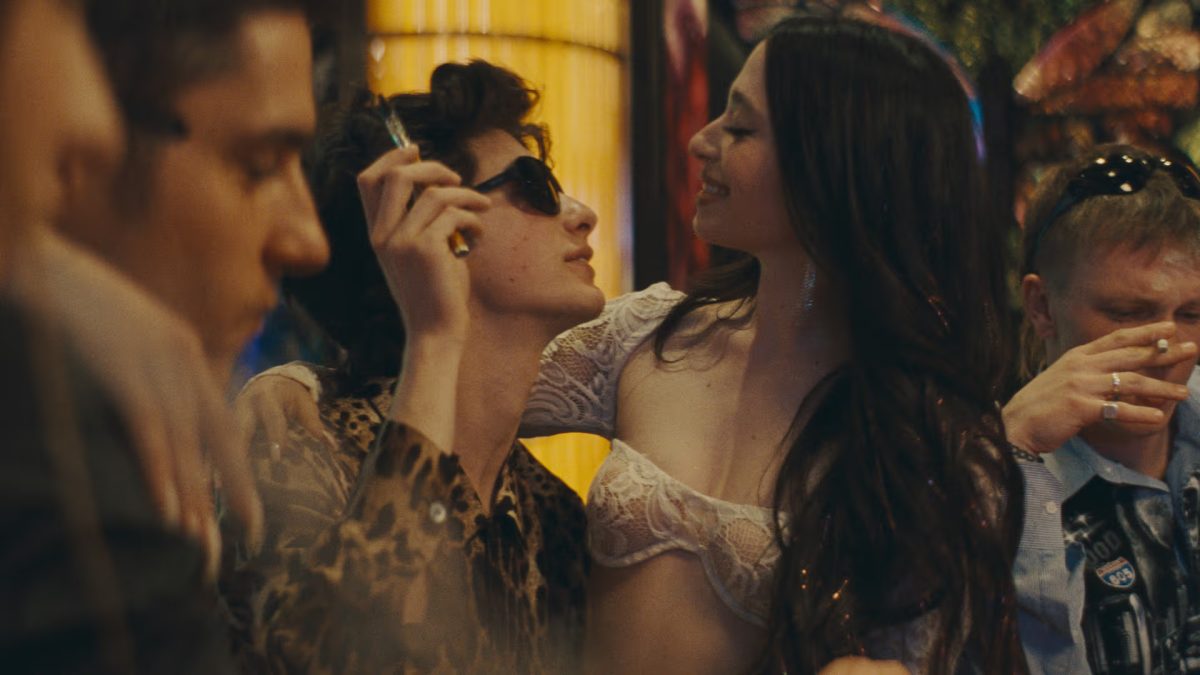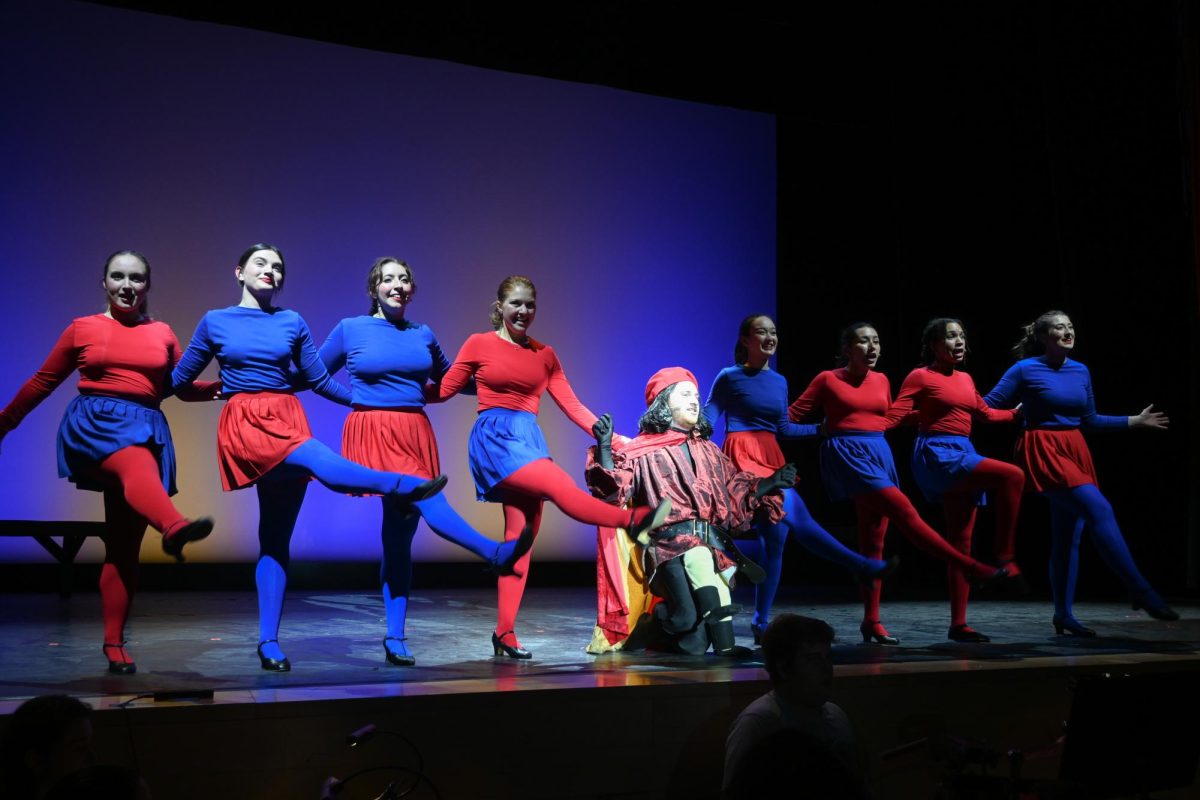Sean Baker wants his audience to be locked into the present. There’s no need for a backstory, no requirement for extensive exposition and a refusal to “tell” — it’s all show. And that’s the crux of his newest film, “Anora.”
The eighth feature film from the New Jersey-born director, “Anora” is a love story about Ani, a 23-year-old Russian-speaking stripper from Brooklyn, and her runaway marriage with Ivan, the son of a powerful Russian oligarch. Their tale starts off like a Disney film — though far more X-rated than “Cinderella.” Their elopement is initially filled with sex and glamor, but reality strikes when Ivan’s controlling father gets word about their marriage.
What ensues after the dreamlike first act is a cavalcade of chaos as Ivan runs away after his father’s hired goons show up, hogtie and nearly kidnap Ani — all before getting beaten up by her in Ivan’s penthouse. The film becomes far more akin to a Coen brothers rollercoaster than the stress and calamity of “Uncut Gems.”
“Anora” feels like another installment in the great showcase of Baker’s filmmaking ethos: punch-drunk portrayals of marginalized subcultures. “The Florida Project” is loud and glum, its ending going from a tear-inducing window into the painful reality of the United States’ hidden homeless to a bittersweet bandage. “Tangerine” is a chaotic story about a transgender sex worker’s odyssey for revenge on her cheating pimp/boyfriend.
And so Baker has now turned his lens to a different, yet similar, corner of Americana.
“I like to see it as people who are chasing the American dream, but don’t have easy access to it,” Baker said in an interview with NPR. Ani, the daughter of a Russian migrant, lives in a small home in the Brooklyn neighborhood of Brighton Beach, known for its high population of Russian-speaking immigrants. She spends much of the film chasing after her new husband and clinging to the hope that she can rise out of the depths of poverty.
It’s certainly one way of fulfilling that dream against all odds, and as the story takes turn after turn, oftentimes dizzying in its repetition and vociferous with the shouting and slamming and shattering of everything in the title character’s way, her determination to cling to her marriage becomes increasingly questionable.
The same way Sin-Dee Rella from “Tangerine” would stop at nothing in her way to find her cheating ex and Moonee from “The Florida Project” did whatever possible to block out reality, Ani refuses to let her life fall out of her control.
Mikey Madison, who began her career playing the moody teenager Max Fox on the comedy series “Better Things,” has been plodding through minor roles in films on the cusp of a major break. She landed a voice role in the 2019 animated retread of “The Addams Family.” That same year, she played convicted murderer and member of the Manson family Susan Atkins in Quentin Tarantino’s “Once Upon a Time… in Hollywood.” But it was after Baker saw her striking role as Amber Freeman in the 2022 soft reboot of “Scream” that he knew she was the perfect choice for Ani.
“I was in the theatre next to my wife and producer [Samantha Quan], and I turned to her and I said, ‘We’re calling Mikey’s reps the minute we leave the theatre,’” Baker said in an interview with Variety.
In “Anora,” Madison has emerged as a fully realized talent giving depth to the title character. In her eyes, the audience can find Ani’s cold feelings when hinting at her past, and her physicality in both her dancing and her fighting is the type of rough-and-tumble style one would find in the rougher corners of society.
There’s no sense of calm in “Anora.” Madison’s performance helps construct that tornado of emotions swirling around the main characters as they comb through the corners of New York City, but the side characters help bring levity to the tension. Vache Tovmasyan and Yura Borisov’s Garnick and Igor, two henchmen hired by Ivan’s family, are injections of deadpan deliveries and slapstick physical jokes in the eye of the storm that “Anora” creates.
This circus of genre-bending chaos comes together surprisingly neatly. Through Baker’s tight direction and defining performances from Madison and the rest of the cast, what could’ve easily been a confusing and aimless film with no realized themes instead blossoms as another portrait of the common American’s pursuit of happiness.
That serpentine journey weaves through New York City’s strip clubs, diners and penthouses, and, as the movie progresses, Ani often seems on the verge of breaking. But she’s tough — she’s from Brooklyn. Even through a spurned repudiation by Ivan’s family at the top of the second act, one can’t help but wonder how much more emotional and physical abuse she can take.
It’s a common thread through Baker’s filmography. His characters are subjected to Sisyphus-like tortures with just enough comedic moments to break the audience from that tragic trance.
And just as “Tangerine” and “The Florida Project” wind up with a vicious, tear-jerking punch at the very end, the final moments of “Anora” are just as shocking. Perhaps an admonishment to Ani’s own persistence in feigning control over her own life, or just the cold, hard reality of her lack of emotional connections, the very end of the film is several uncomfortable minutes that strike a bold underscore through the previous events.
The 2024 Palme d’Or-winning film is sure to garner endless Oscar buzz, and it’s a long time coming for Baker. He’s hiked through the filmmaking industry unveiling tapestries of struggling subcultures and placing a magnifying glass over them for audiences to observe.
With “Anora,” the music, laughs, love and pain that Ani experiences create a heartbreaking tale — a sort of inverted Disney story — reflective of what many suffer through. Few films this year have presented something more disturbing and more human than Ani’s final cries as the screen fades to black — a macabre ending to a turbulent, American love story.









